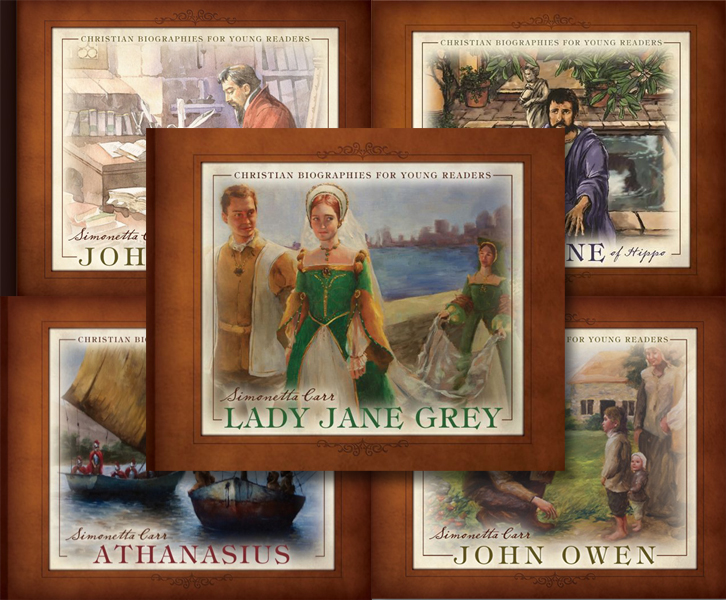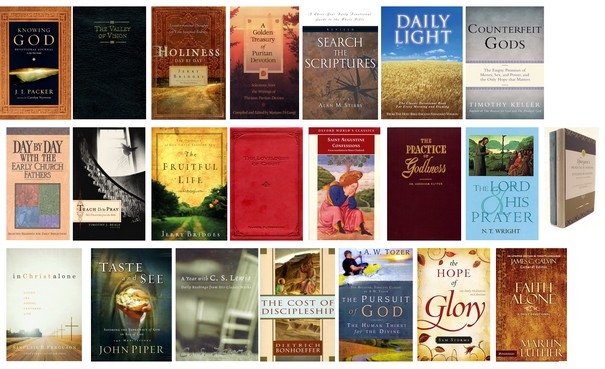
We always feel that the past is done and irrelevant to our current lives. But is it really? Most cultural settings and nations are where they are today because of the sum of their history and the shaping of the events within those histories. It gives each of them a uniqueness and identity.

Christianity is no lest. We are where we are today through the dedicated lives of past giants. Jesus’ life on earth and His act of supreme sacrifice at Calvary is no less important because it happened in the past. There is value in knowing our dead giants and much of that can be gained through reading books about them and that were written by them.
What are good remains good, undiminished, though the giants may be gone. During the recent KNOW ConneXion conference, bro Phillip Chong shared on the topic.
Images Cannot Replace Words
Part of the reading about past events can come from a study of the Bible, and at times one may feel that way, especially when it comes to the Old Testament. In fact, much of the Christian tradition has been an oral one instead of a visual one. Why is reading crucial and more important than what we see?

Phillip explained that words often have an ability to express beyond what we see. In documenting events, words best capture visible realities. We often experience this when we jump the gun, making judgments based solely on our visual information. And sometimes we judge people wrongly.
Say we see someone demanding something from a seemingly weaker person. Most of the time we would jump to the defense of the weaker person, only to find that the seemingly weaker person might have embezzled funds or something else from another person.
Written words are also usually more thought-out. Though less spontaneous, the ideas expressed through written words had often undergone a process of reflection before being jotted down, especially if the thoughts were extremely important to the writer.

There are times when written words have also displayed the best ability to communicate invisible realities, much as music does. In the same way music expresses the cries of a soul that cannot be seen visually, words have the ability to express truths about God and Christ that cannot be shown visually.
Because words have these unique abilities, they also serve as vehicles of our eternal hope. They transcend time and our limited physical senses. How else would we know certain Biblical truths or learn about something that we cannot process from our immediate surroundings, or directly through our eyes? The Israelites abandoned God’s word for an image and landed up in idolatry. Words are valuable and those of past giants no less so.
Why Read Church History?

Having determined that words have certain unique properties that give them immense value, why is the study of Church History beneficial? Bro Phillip gave 5 reasons:
-
History is ‘His Story’: The Christians of the past are our brothers and sisters, and we all belong to the same Father. By studying Church History, we would know our roots. -
History humbles us: By studying Church History, we would come to a realization that our places are just a small piece in an inexpressibly much larger picture. Being concerned only about our immediate surroundings limits our perspective. The canvas of History shows us God’s sovereignty and purpose since the dawn of time. -
History always repeats itself: This is a familiar truth to many of us. If we study History, we would find that events in History tend to repeat themselves in certain patterns. Because these patterns are recurring, serious study of them and the mistakes people have made in the past would yield lessons to be learned. -
History is useful for apologetics: Our Christian faith has the uniqueness of being intrinsically tied to the historicity of Christ. Much of the philosophical and political systems in the world are tied to theories. If the person who had originated them had not existed, the ideas would still survive if it had come from another founder. Christianity is different. It is innately tied to the person of Jesus and His role as Messiah. If Jesus is not who He said He is, if the sacrifice on Calvary had not actually occurred, Christianity would have collapsed. It is thus important that we know the Gospel well, including the reason for such councils as the one in Nicaea in 325AD, and be conscious of why certain ‘Gospels’ were considered spurious.
-
History gives us hope: By focusing on our immediate circumstances and current events, we sometimes have a tendency to fall into pessimism. Stories of hope in often much darker times in history gives us faith in a sovereign and compassionate God.
Reading Christian Biographies

Bro Phillip communicated that reading about our past leaders is actually a Biblical mandate. In Hebrews 13:7, Scripture counsels us to remember past leaders who had taught (and labored for) the word of God. We are encouraged to think of all the good that had come from their lives, and to follow the example of their faith.
Reading about the lives of these past ministers and servants for God, and that they labored so hard for God is a humbling experience. But it is also encouraging, that though they were flawed sinners like us, they were still being employed by an extraordinary God to accomplish His design for the redemption of the world.
The Value of Christian Classics
What is the value of reading Christian classics? Bro Phillip conveyed that newer is not always better. Classics are works that have stood the test of time, and still being appreciated hundreds (sometimes thousands) of years for their insight and technical mastery.

Some examples of such works are Augustine’s Confessions and Athanasius’ On the Incarnation of the Word. Hundreds of years from now, when much of the work currently produced would have disappeared, these classics would still be appreciated for their wisdom.
Additionally, no matter how much time might separate the classics from the contemporary, the human condition and God’s truths are still the same. Many of our great present-day works still make references to the works of past giants such as Augustine, Blaise Pascal, or CS Lewis.

Finally, Bro Phillip expressed, we all have our blind spots. Learning through the mistakes that had been committed by others in the past, we may learn of their consequences, and through the study of God’s word, we may gain spiritual wisdom.
Advice for the Study of Christian History and Classics
Bro Phillip exhorted that if we were convinced of the worth of Church History and the classics that came out of it, there are certain best ways to approach their study. Firstly, learn to read more. Widen our area of focus and interest. If we have only read books about the prayer life, perhaps we can also read books on the study and exegesis of the Bible.

However, there is also another approach that we can take. If we have already made an active study of Church History and its classics, it may be best to read less. What this means is that we make a focused and disciplined reading of the materials we’re studying. Reading few books and retaining 80% of its substance is better than reading many books but obtaining only 30% of their value.

Most importantly, whatever we’re reading must serve primarily as signposts to the real Book we are all called to read as Christians. Ultimately, nothing can replace the word of God, which is directly inspired by the almighty and sovereign God Himself.
|Share The Good News|
– Jason Law




Leave a Reply